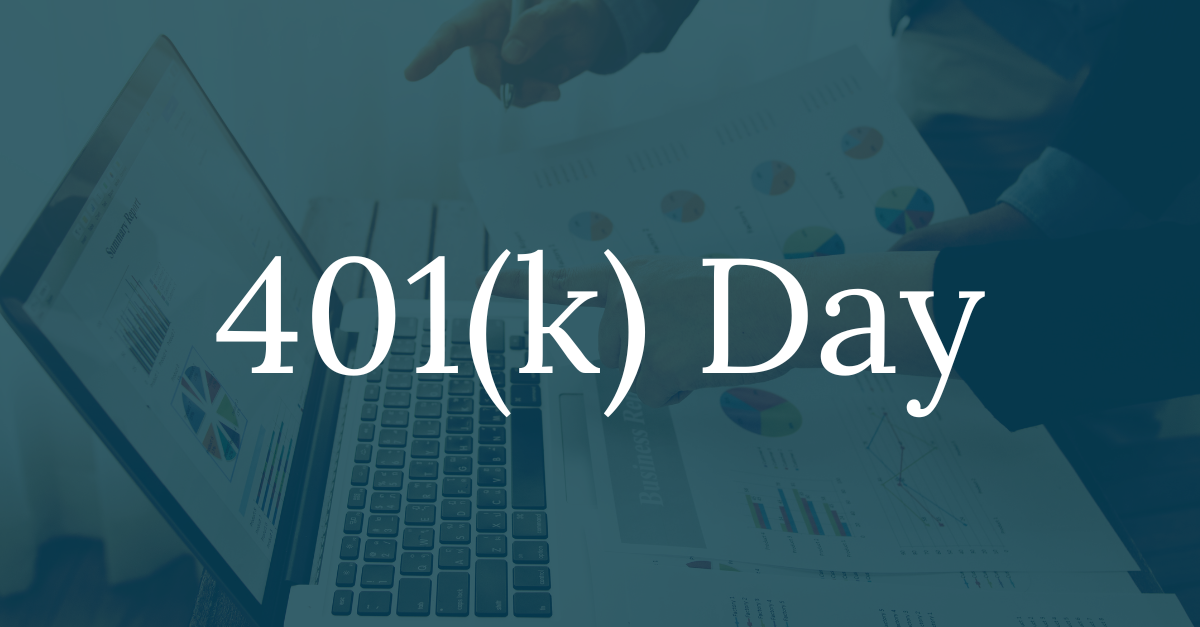
What You Need to Know about the Recent DOL Audit Quality Study Results
National 401(k) Day is observed each year on the Friday following Labor Day. It serves as an annual reminder to shift focus toward securing our financial future. The day was first established in 1996 to raise awareness about the importance of saving for retirement through retirement plans, like 401(k) plans. This date signifies the end of summer and aligns with a natural period to renew focus on work and financial health.
The Role of 401(k) Plans
Plan sponsors, financial advisors and retirement plan providers all play critical roles in educating individuals about the benefits of 401(k) plans and how to maximize the benefits of retirement savings. Plan auditors also play an essential role in helping protect the assets of established retirement plans. The Department of Labor (DOL) previously conducted an Audit Quality Study in 2014 and the retirement plan industry has been eagerly awaiting the results of an updated study to see how much progress was made in audit quality throughout the past eight years.
DOL Audit Quality Study Results
In November 2023, the DOL finally released its most recent audit quality study results. This audit quality study serves as the fourth assessment of the quality of audit work performed by independent qualified public accountants (IQPA) on employee benefit plans and focuses on form 5500 and audit filings for the 2020 filing year (plan years beginning in 2020). The DOL completed previous studies in 1997, 2004 and 2014. The primary objective was to determine if audit quality was improving over earlier studies, and the DOL selected 307 audit engagements with a broad sample of simple (401(k) and 403(b)) and complex plans (defined benefit plan, health and welfare, and Employee Stock Ownership Plans) for review.
The study found that 30% of the audits contained major deficiencies concerning one or more relevant auditing requirements. While this is an improvement from the last audit quality study, which found 39% contained major deficiencies, it is still an alarmingly high rate for major audit deficiencies.
Evaluating Employee Benefit Plan Audit Firms
The audit quality study continues to find a clear link between the number of employee benefit plan audits a firm performs and the quality of the audit work. The study also stated that peer review and practice monitoring efforts do not help identify deficient plan audits. However, audits by firms that are members of the American Institute of Certified Public Accountants (AICPA) Employee Benefit Plan Audit Quality Center (EBPAQC) did have significantly lower deficiency rates. Fifty-one percent of CPA firms performing plan audits are members of the EBPAQC.
Like prior years, the study’s conclusions indicated that the smaller the CPA firm’s EBP practice, the greater the incidence of audit deficiencies. Additionally, plan sponsors relying on an overall “clean” peer review opinion may be misled. Instead, they should focus on the number of plans the firm services and if they are a member of the AICPA’s EBPAQC.
This 401(k) day should not only allow participants to reflect on their future retirement goals but also be a time for plan sponsors to assess the quality of the audit services they are receiving. The October 15th filing deadline is just around the corner for retirement plans, so after you complete the filing, take time to assess who you will partner with for 2025. If you have questions about your employee benefit plans, please get in touch with us.

